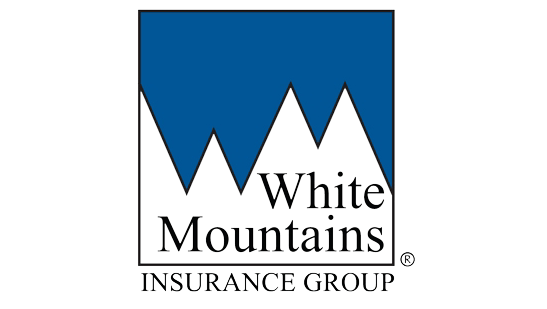White Mountains Insurance Group, Ltd. has announced an increase in net income to $115.4 million for the second-quarter of 2020 but a loss of $13.4 million for the first six months of the year.
 Comprehensive income also spiked for the quarter to $115.7 million against $17.6 million a year earlier, although for H1 2020 the firm posted a comprehensive loss of $16.5 million, compared with income of more than $301 million in H1 2019.
Comprehensive income also spiked for the quarter to $115.7 million against $17.6 million a year earlier, although for H1 2020 the firm posted a comprehensive loss of $16.5 million, compared with income of more than $301 million in H1 2019.
In the first six months of last year, White Mountains explains that its result included $182 million of realised and unrealised gains from MediaAlpha’s sale of a significant minority stake to Insignia Capital Group.
“We had a good second quarter. ABVPS increased 4% to $1,022, driven primarily by a 6.5% return on our investment portfolio,” said Manning Rountree, Chief Executive Officer (CEO). “BAM wrote $43 million of direct premiums and member surplus contributions, its biggest quarter ever, driven by robust demand for insurance and higher pricing. NSM saw 2% organic growth in controlled premiums, quarter over quarter, and closed the Kingsbridge acquisition in April. Kudu enjoyed a strong quarter, benefiting from the rebound in investment markets and closing the Sequoia transaction in June. MediaAlpha had another excellent quarter, driven by strong performance in its insurance verticals.
“At PassportCard/DavidShield, the global slowdown in travel activity has caused a significant decline in premiums and revenues; in May we invested $15 million to support operations and to continue global expansion. During the quarter, we repurchased $31 million of shares at an average price of $887. We ended the quarter with $0.8 billion of undeployed capital and ample liquidity.”
Within BAM, gross written premiums (GWP) and member surplus contributions (MSC) totalled $43 million in Q2, up from the $25 million posted a year earlier. Total pricing in BAM 105 basis points in the second-quarter of 2020, against 84 in the prior year.
Seán McCarthy, CEO of BAM, noted: “BAM had a strong quarter. Institutional and retail investor concerns about credit volatility drove robust demand for insurance and expanded our opportunities to insure higher-quality bonds. This was evident in both the primary market, which reopened in April and experienced increased insured penetration, and the secondary market, which was highly active. The COVID-19 pandemic is negatively impacting the finances of municipalities to varying degrees, and, over time, financial stress could emerge.
“We continue to monitor the finances of our member issuers and are working proactively to make sure they are prepared for any pandemic-related revenue losses. BAM’s existing credit portfolio is of high quality and structured to be resilient during economic slowdowns; all BAM-insured bond payments due through August 1 have been made by insureds. Also, in late June, S&P Global Ratings affirmed BAM’s “AA/stable” rating.”
Turning to HG Global, and the firm reports pre-tax net income of $20 million for the second-quarter of 2020 compared with $15 million in Q2 2019, driven mostly by elevated investment returns. White Mountains reported a pre-tax loss related to BAM of $9 million for Q2 2020, compared to a loss of $7 million in Q2 2019.
Within the firm’s NSM unit, the company has announced a pre-tax net loss of $4 million, alongside commission and other revenues of $76 million. This compares with a pre-tax net income of $1 million and commission and other revenues of $66 million in the same period last year.
CEO of NSM, Geof McKernan, said: “NSM had a sound second quarter despite the challenging environment. Trailing 12 months pro forma controlled premiums crossed the $1.0 billion threshold for the first time ever, reflecting both the Kingsbridge acquisition and 2% organic growth in our existing verticals. Pro forma adjusted EBITDA was $57 million, reflecting both the Kingsbridge acquisition and flat results in our existing verticals, as we continue to invest for growth. We saw significant growth in certain U.S. verticals, including pet and real estate, offset by a decline in the U.K. vertical.”
Kudu’s pre-tax net income increased from $2 million in Q2 2019 to $18 million in Q2 2020, which included a $17 million unrealised gain on the segment’s participation contracts.
CEO of Kudu, Rob Jakacki, commented: “Kudu’s diversified portfolio has proven resilient through a period of uncertainty in global markets. We were pleased to close our investment in Sequoia, a wealth manager with an impressive platform, and we are excited to partner with the firm to support its growth. We have now deployed $324 million across 11 firms with an average cash yield to Kudu at inception of 10.2%. Our model of providing tailored permanent capital solutions to asset and wealth managers has broad appeal, and our pipeline is strong.”
Lastly, White Mountains has reported that its Other Operations division recorded pre-tax income of $107 million for the second-quarter of 2020, up from the $5 million of income reported a year earlier. All in all, net realised and unrealised investment gains amounted to $122 million in the second-quarter of this year.
Additionally, White Mountains has revealed that the total return on invested assets stood at 6.5% in Q2 2020, up from 2% in Q2 2019.
“The total portfolio was up 6.5%; a strong result, driven by the rebound in equity markets during the quarter. Our portfolio of common stocks and ETFs returned 19.2%, just behind the S&P 500 return of 20.5%. Other long-term investments returned 4.0%, which included a $17 million increase in the fair value of Kudu’s participation contracts and a $15 million increase in the fair value of our investment in MediaAlpha. Fixed income returned 2.8%, ahead of the BBIA Index return of 2.1%,” said Mark Plourde, Managing Director of White Mountains Advisors.


